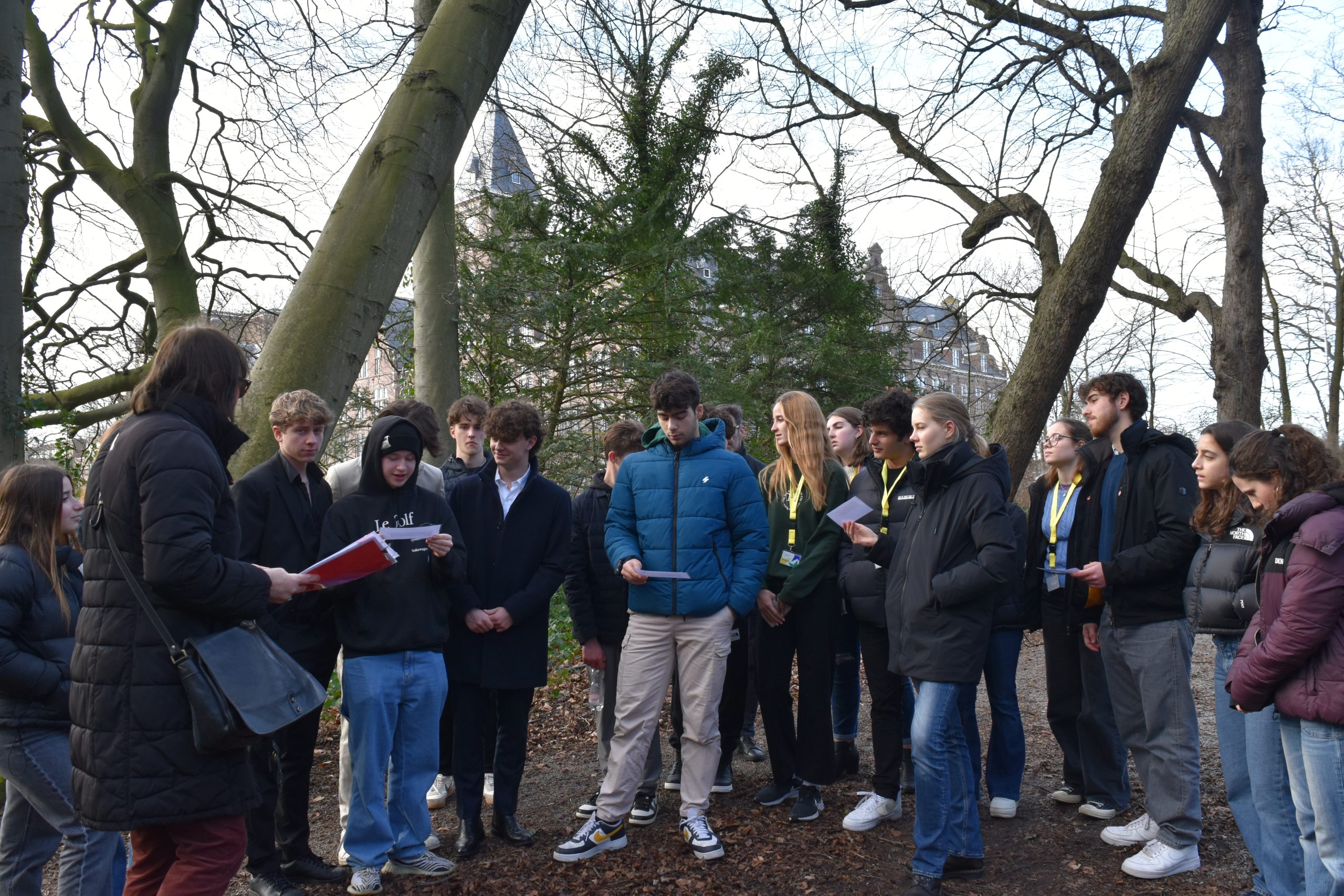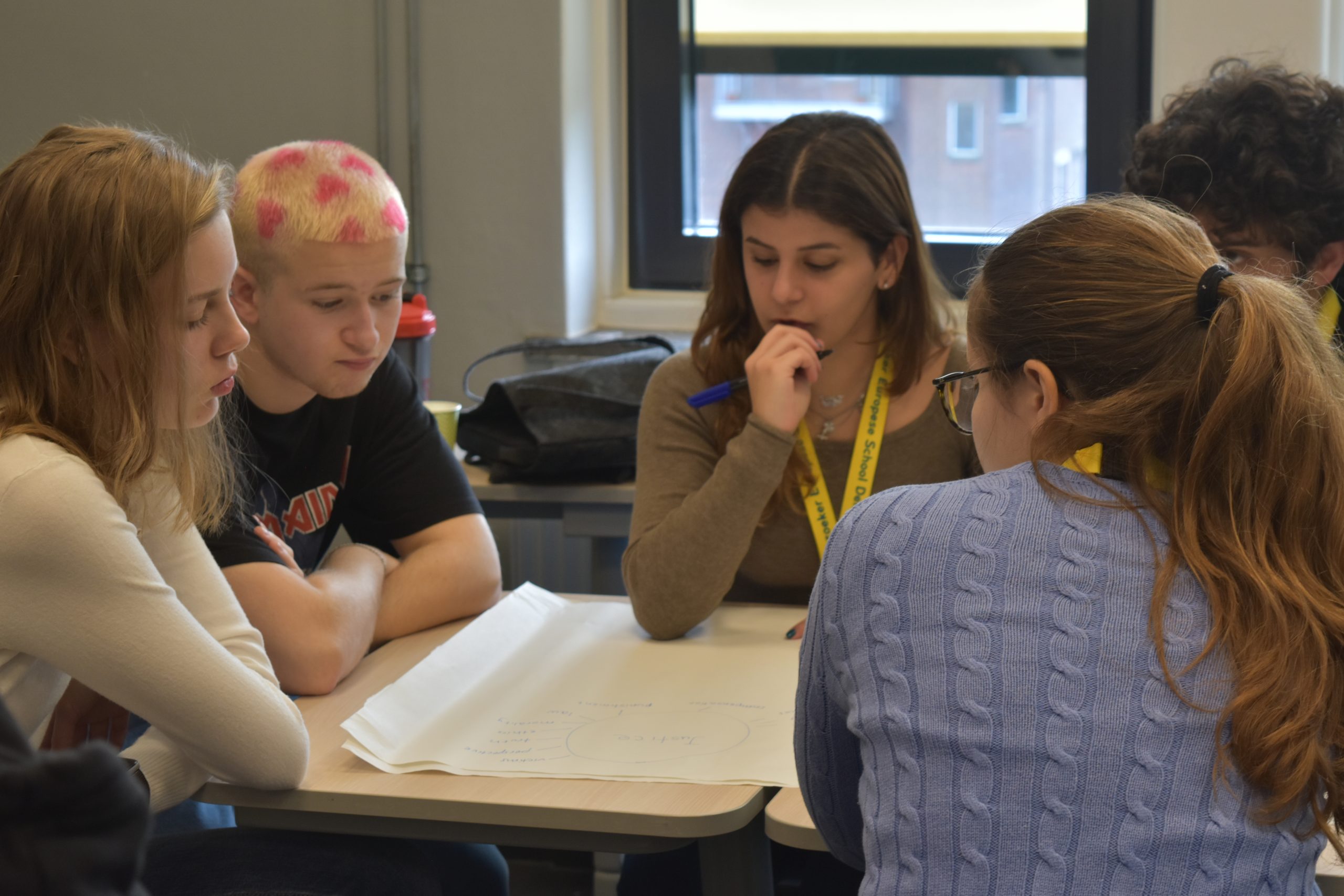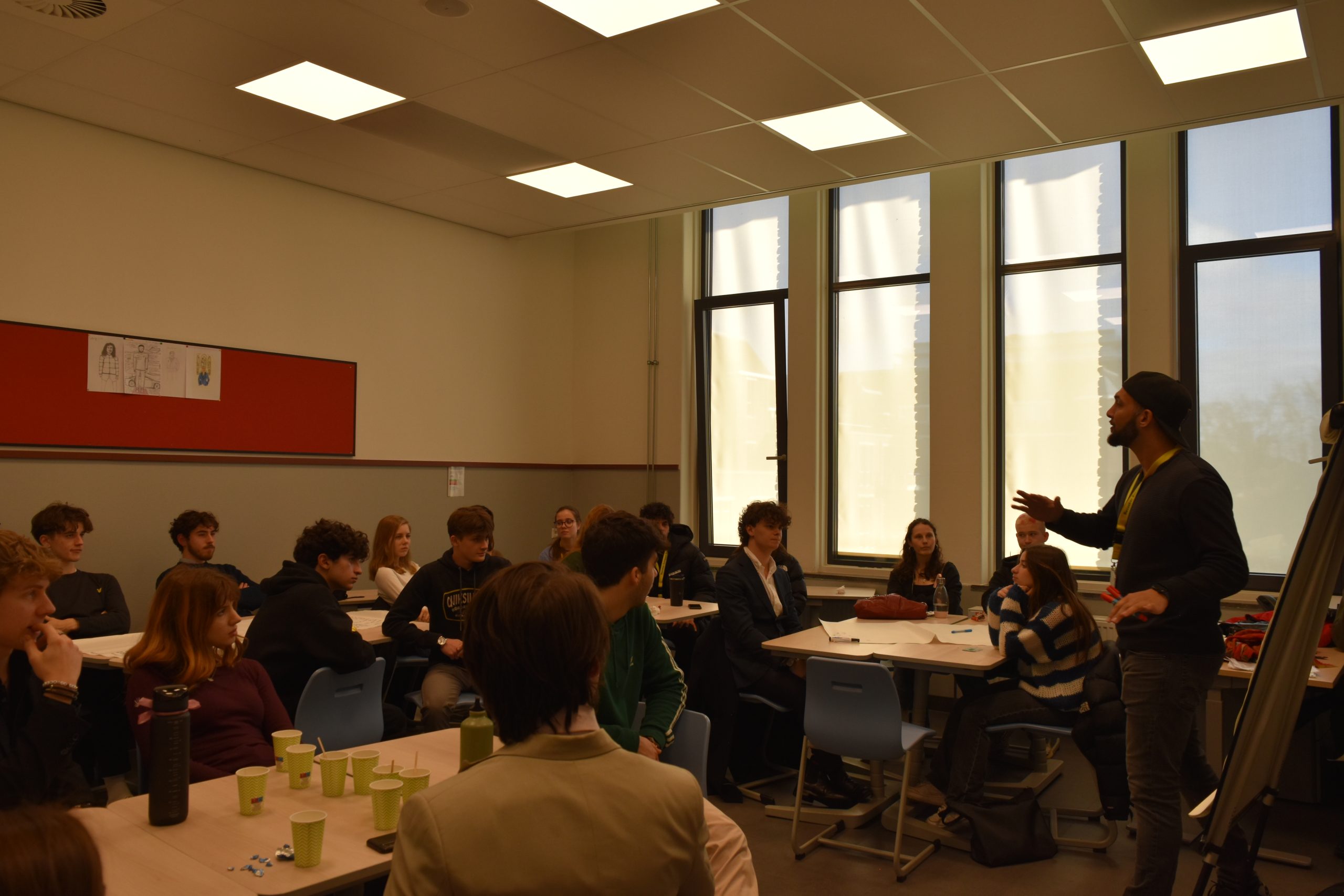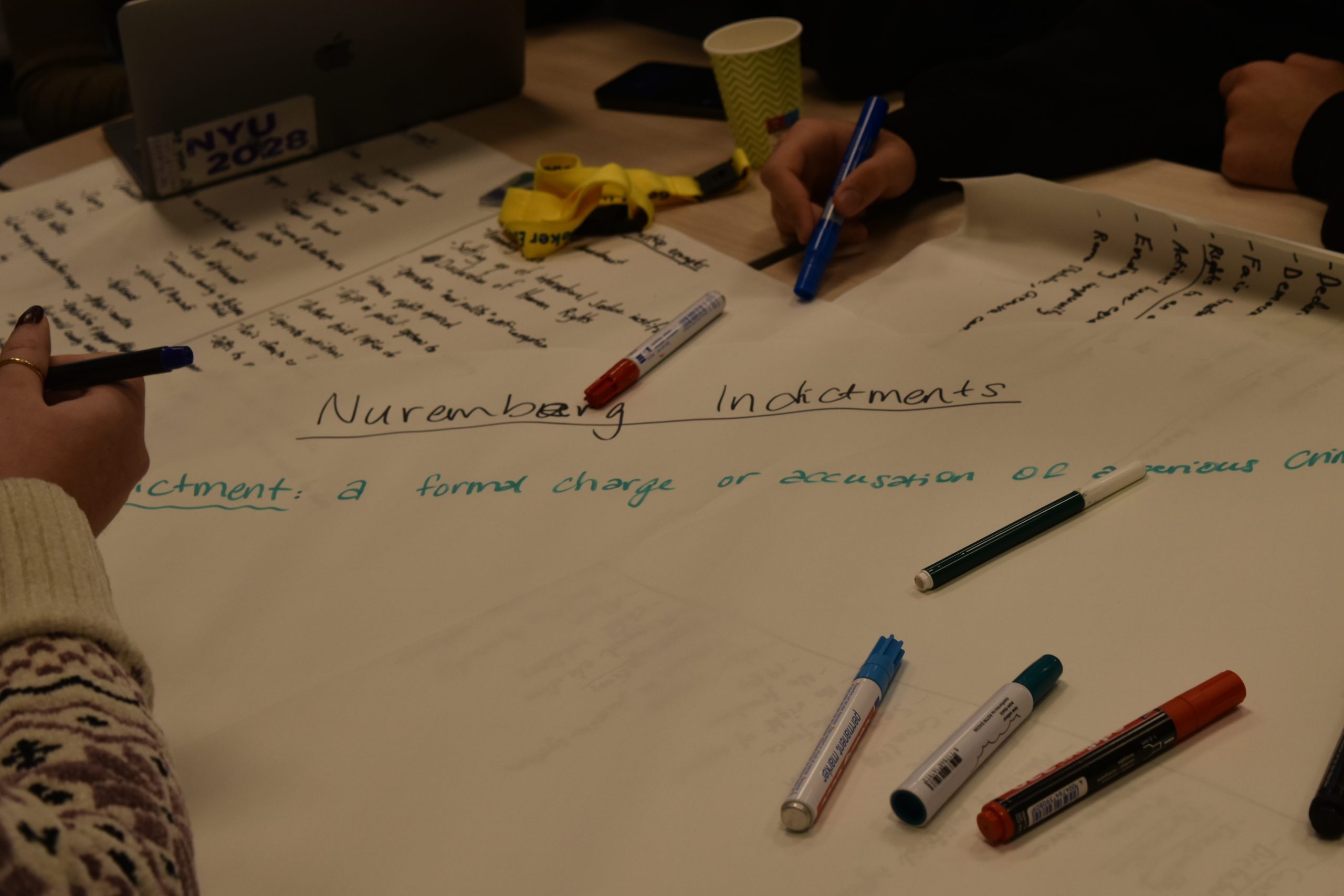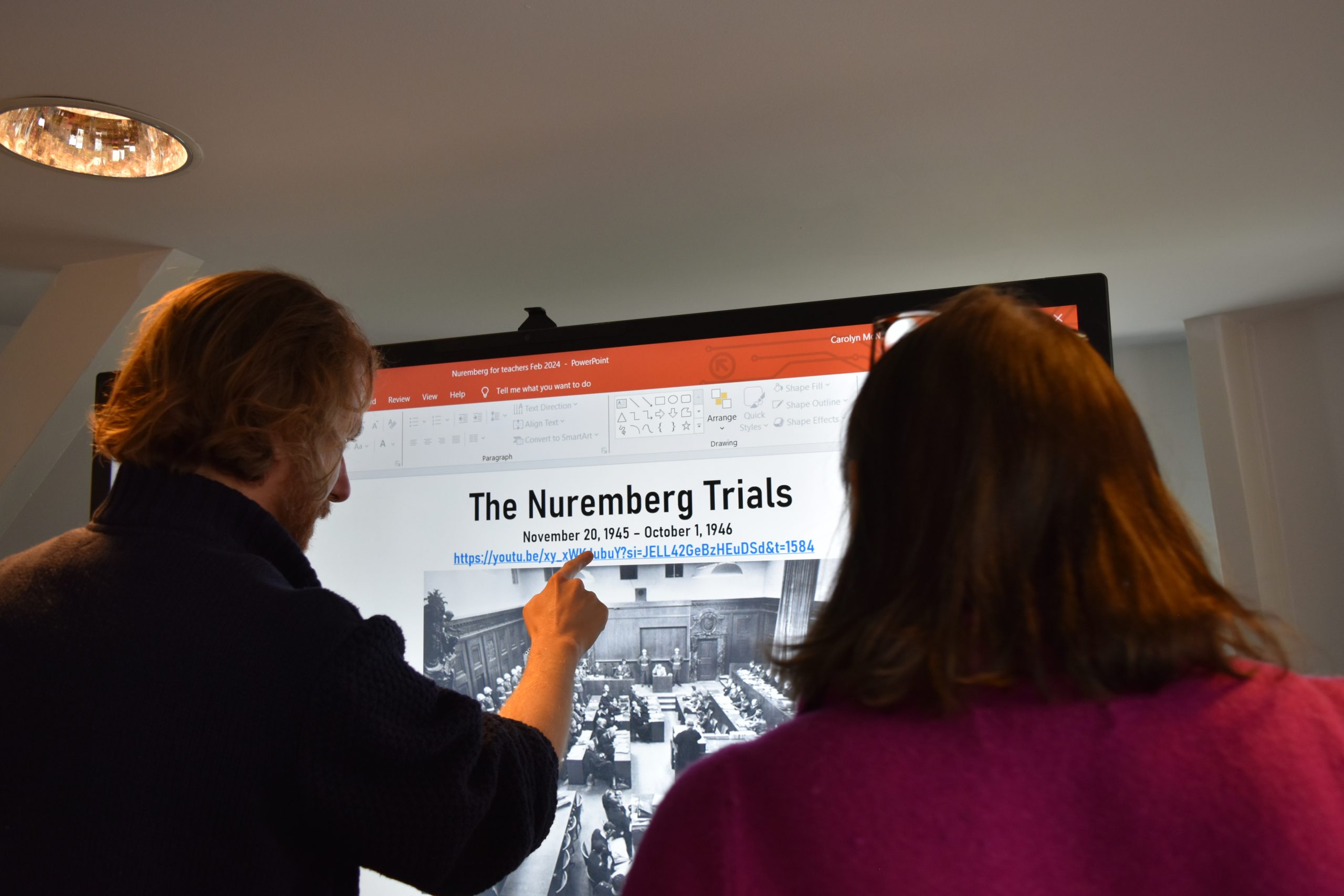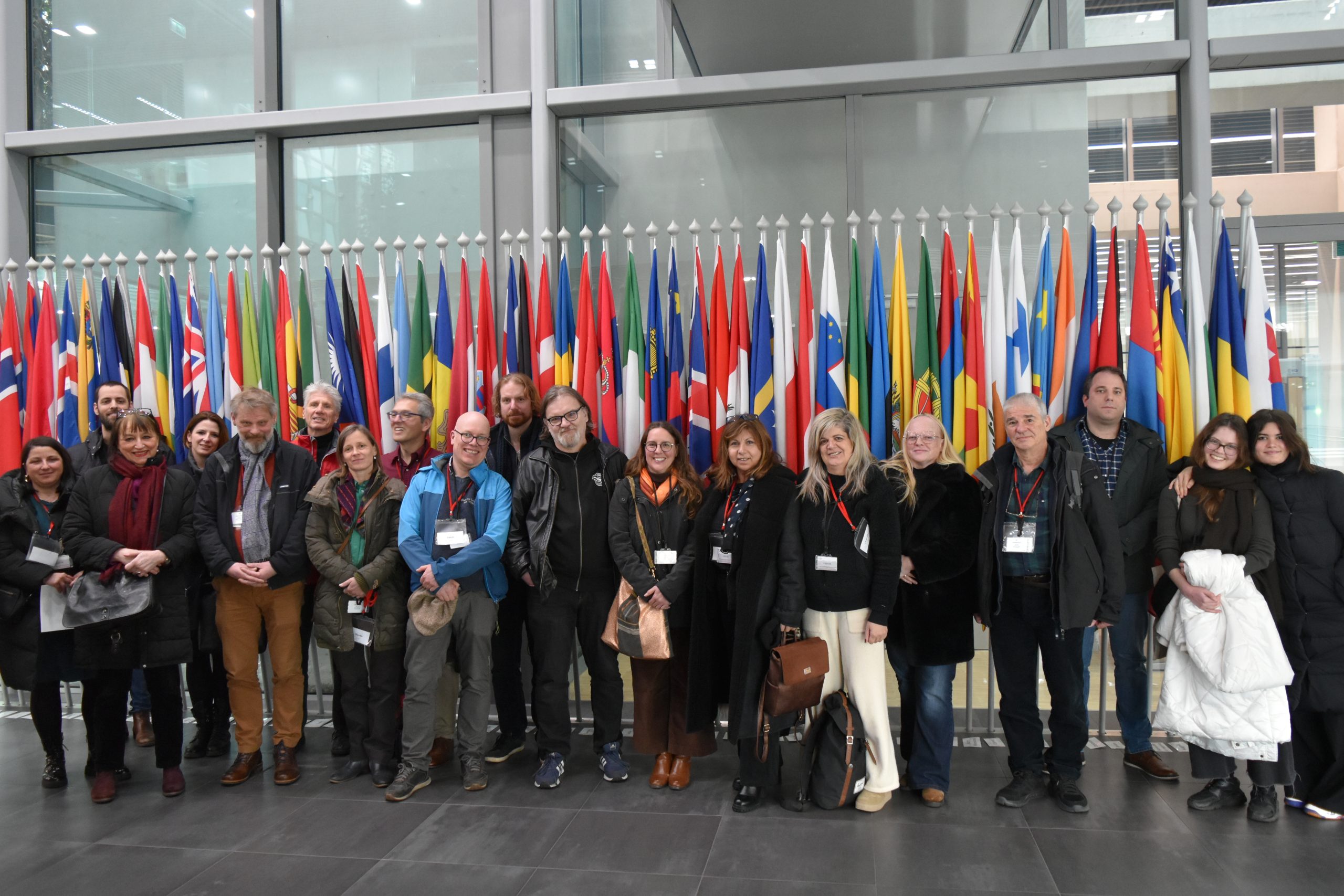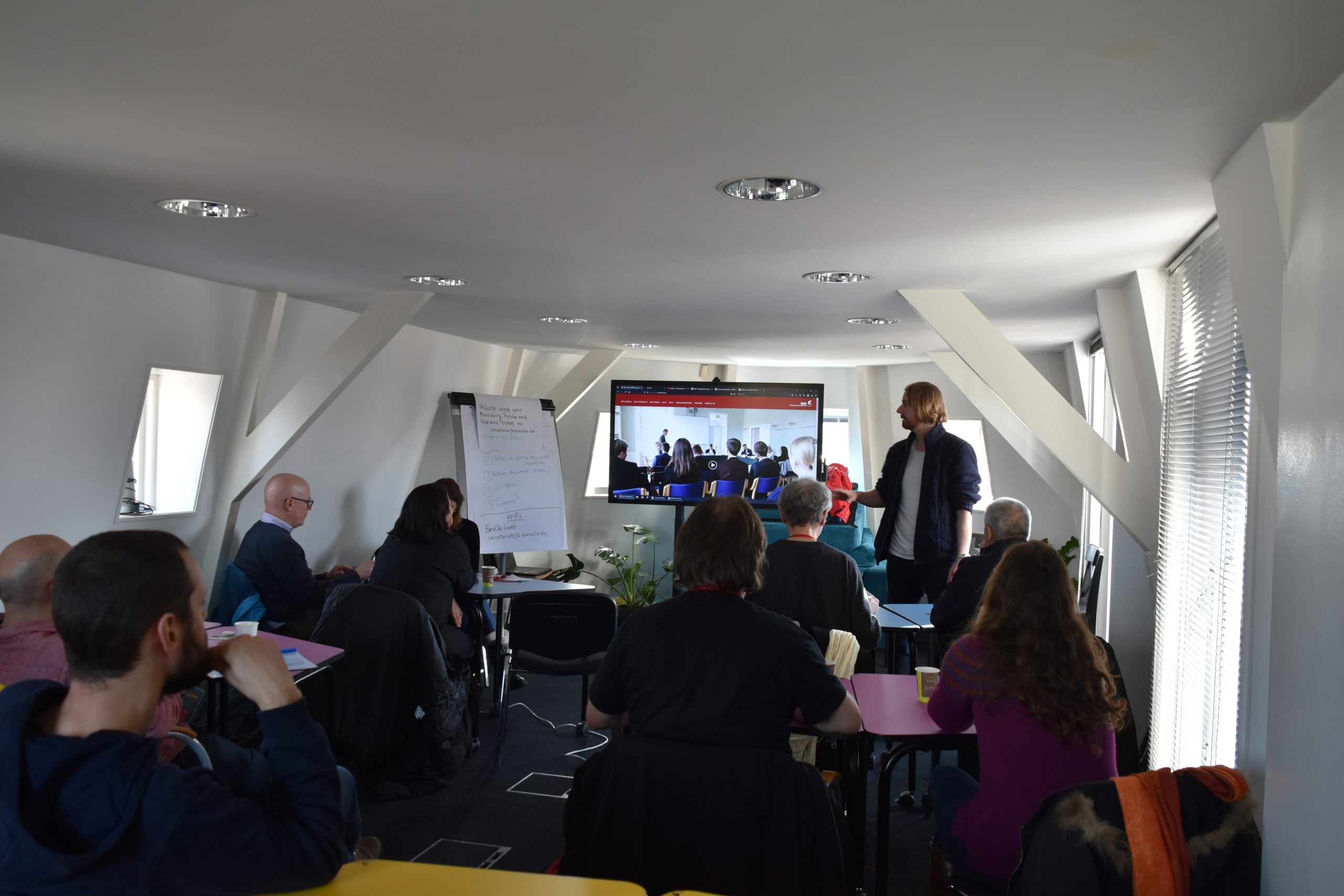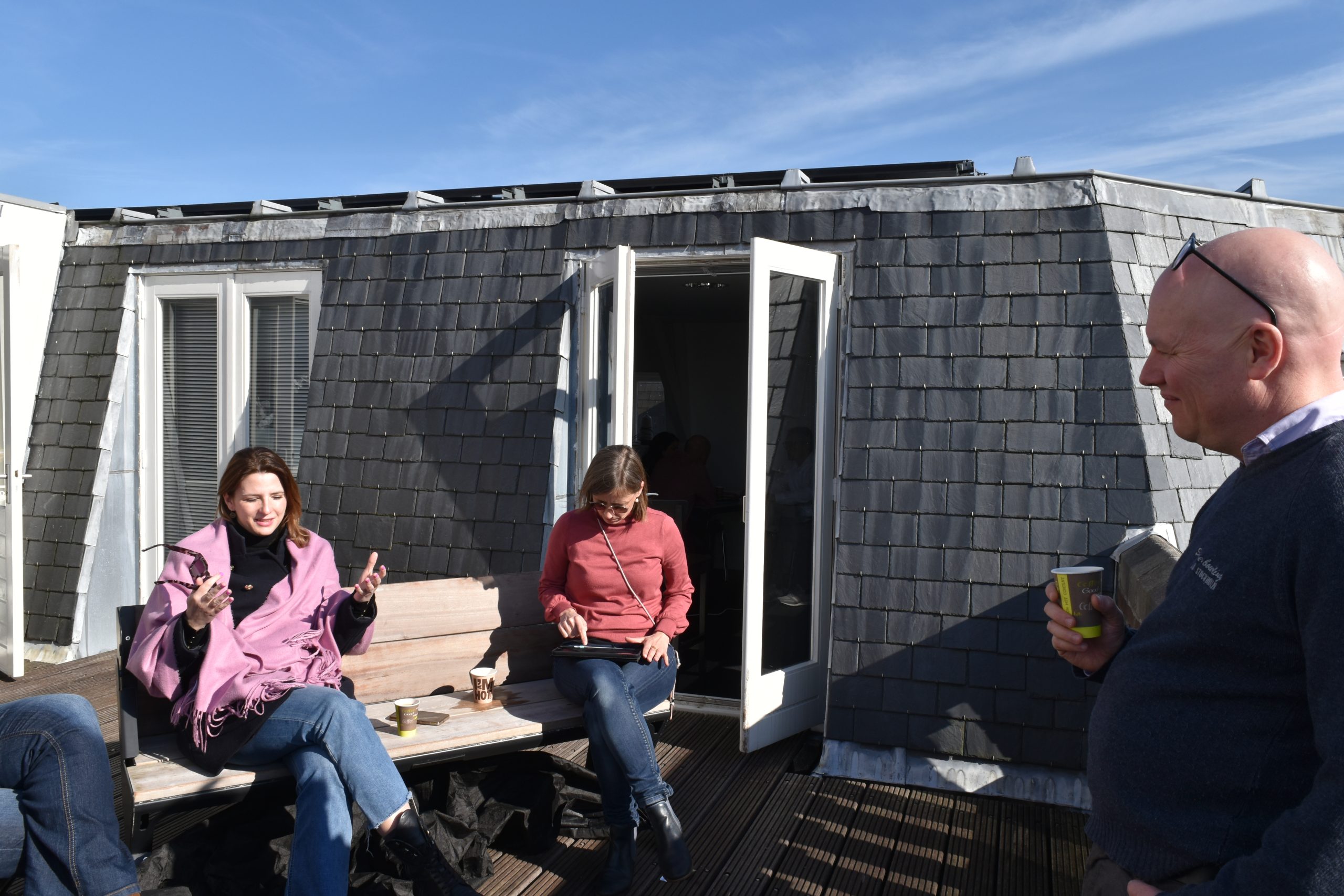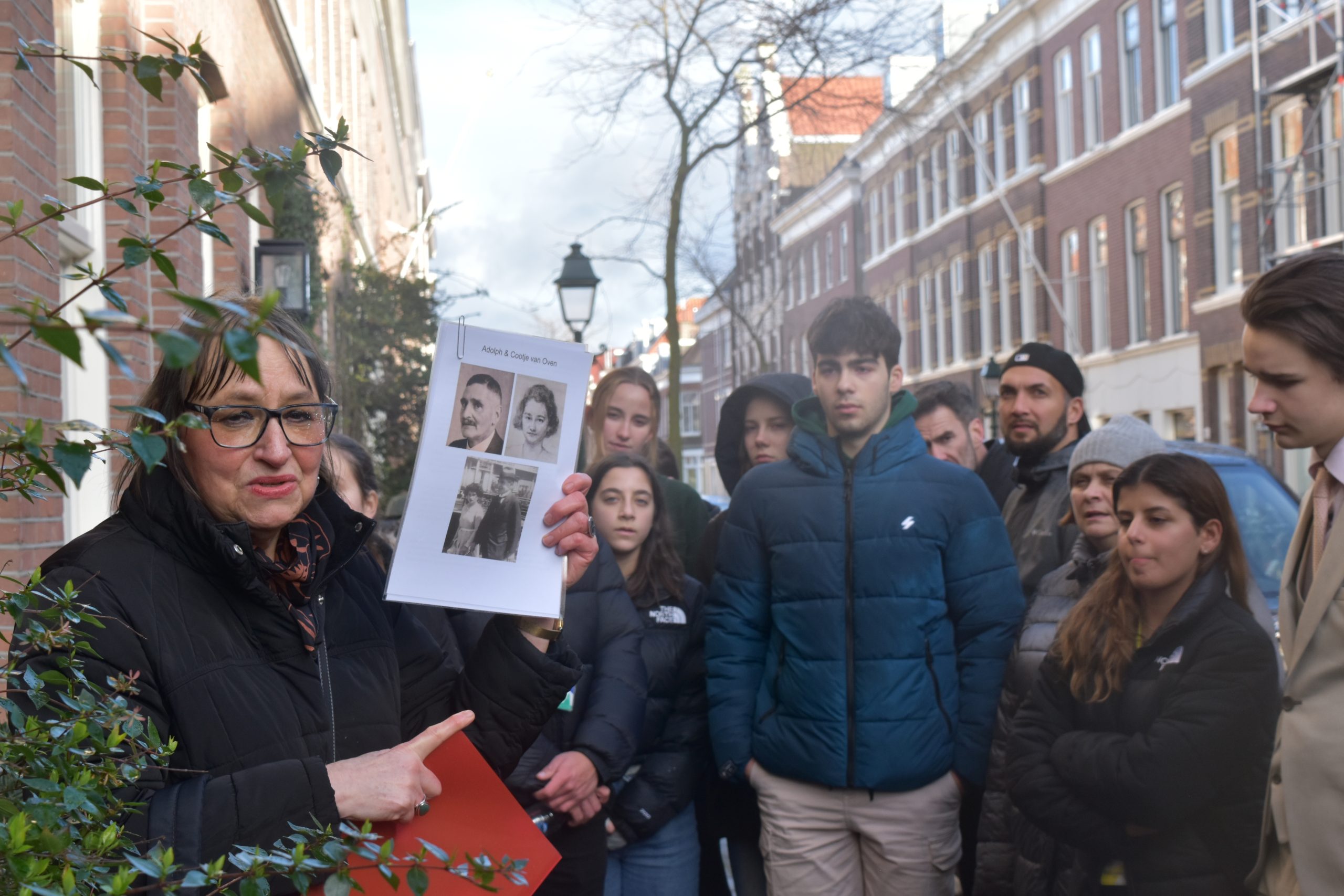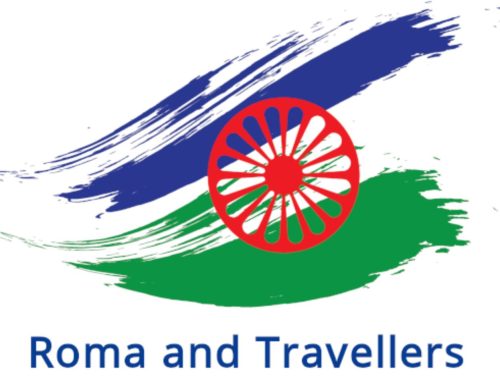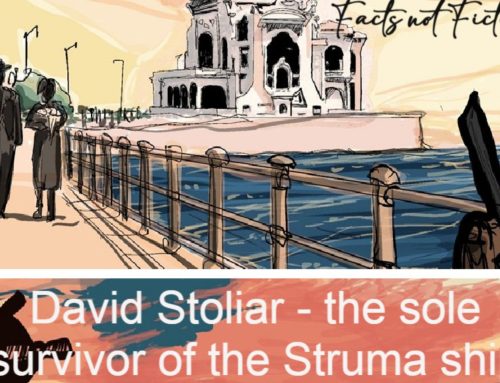Throughout the month of February, EuroClio collaborated with distinguished educators and professionals Barry van Driel, Carolyn McNanie, Trivko Pater, and Aaron Peterer, to host two separate and dynamic editions of the “Seeking Justice: From Nuremberg to The Hague” workshops tailored specifically for both students and teachers. These seminars brought together participants from schools spanning across Europe, uniting them in a shared exploration of international justice and its historical and contemporary significance. During the sessions, participants delved into discussions on justice and injustice, drawing from pivotal historical events such as the Nuremberg trials and the ongoing evolution of the International Criminal Court (ICC).
The student seminar, spanning from February 12th to 15th and held at the European School in The Hague, was designed to help young students deepen their understanding of global justice issues, including concepts like transitional justice. The workshop’s agenda was crafted to bridge the historical context of post-WWII justice efforts with current developments in the prosecution of crimes against humanity. A total of 19 students, representing the European School of The Hague and the American International School in Cyprus (AISC), participated in enriching workshops that engaged in a series of thought-provoking discussions, group activities, and presentations facilitated by experts in the field. One highlight activity for the students was a Model United Nations simulation, where each student represented a country and debated the conflict in the Central African Republic and ultimately voted to refer the case to the ICC.
Similarly, from February 26th to 27th, EuroClio hosted 16 educators for a two-day teacher workshop. This workshop invited educators to reflect on their pedagogical approaches to addressing topics of international justice within the classroom. Through interactive sessions and group discussions, teachers explored effective strategies for engaging students in critical discussions on justice, drawing from real-world examples and historical contexts. Additionally, the workshop offered valuable opportunities for educators to exchange ideas and share best practices, enriching their teaching methods and fostering a collaborative learning environment.
The Hague, with its rich history as an international city of peace and justice, provided an inspiring backdrop for the program. For instance, the students had the chance to explore historic landmarks and deepen their understanding of the Netherlands’ history during the Second World War through a memory walk learning activity. Another component of both seminars was the opportunity for participants to gain firsthand insights into the workings of the ICC through visits to its premises and attendance at ongoing trials. These experiences not only deepened participants’ understanding of the complexities of international justice but also provided them with valuable perspectives to enrich their future teachings and educational endeavours.
Overall, the seminars provided students and teachers alike with unique opportunities to delve into global justice issues and engage in meaningful discussions and activities. We are excited to share some pictures to highlight the events.
Moreover, don’t miss out on the latest episode of the EuroClio Podcast, ‘Past Times – Talking and Teaching History’. In this episode, EuroClio had the pleasure of chatting with Ailia Criddle and Julia Karam from the American International School in Cyprus, who shared their experiences from the student workshop of Seeking Justice and learning about international justice. They discussed various aspects of international justice, including those related to genocide and crimes against humanity, as well as their own views on international law and justice. You can listen to the podcast here.
Photo credits: Emma Aellen – IAIE (International Association for Intercultural Education).
